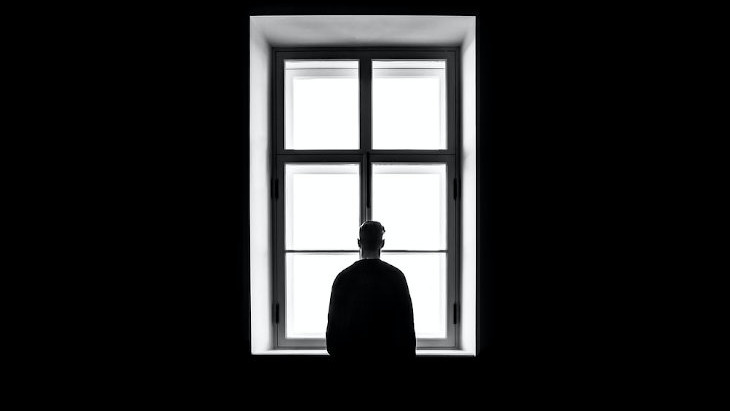 Iran’s Attack on Israel
Iran’s Attack on Israel


7 min read
From time immemorial people have pondered what will happen to them after their bodies breathe their last. What does Judaism have to say about it?
What happens to you after you die?
Well, it depends on what you consider to be "you."
If you consider yourself to be your body – height, weight, BMI, hair, figure, and features – then when you die, it's all over, kaput. You're finished, without even the chance to regret that you didn't have more fun while you were here.
However, if you consider yourself, your essential identity, to be your soul – a non-physical, spiritual entity that inhabits the body – then death is the beginning of a trip that outdoes any drug trip one can imagine. As Steve Jobs' sister Mona Simpson described him on his deathbed: "He looked like someone whose luggage was already strapped onto the vehicle, who was already on the beginning of his journey…."
As he looked over the shoulders of his family members, Steve Jobs' last words to something he apparently saw past them were: "Oh wow, oh wow, oh wow."
So, what exactly is this soul that outlives the body? According to Judaism, it is a projection of the One Ultimate Reality that some choose to call God. Just as the sunbeam is an emanation of the sun, you are an emanation of that One Ultimate Reality. Although the sunbeam is not the sun – either in size or heat – it is nothing other than the sun; so you are not God, but you are nothing other than God.
The three things you need to know about your soul are that it is created, transcendent and beloved. According to Kabbalah (Jewish mysticism), the universe was created because the Infinite Oneness wanted a relationship. So, It contracted that all-encompassing Oneness to make a space for "otherness," the illusion of God's absence that enables you to feel like an independent being. Thus, from a place of free will, you can CHOOSE a relationship with God or not. But from God's side, the door is always open.
According to Kabbalah (Jewish mysticism), the universe was created because the Infinite Oneness wanted a relationship.
When the soul leaves the body (which is the very definition of death), it abandons the world of physicality in stages. Until the body is buried, the soul hovers near it.
Unconstrained by the physical, the soul can go wherever it wants, but it usually stays close to the body and its loved ones. Souls attend their own funerals, which is why in Israel, family members speaking at the funeral address the deceased as "you."
The more a person was attached to the physical body during one's lifetime, the harder it will be for the soul to leave the body behind and ascend to the spiritual world. According to Kabbalah, there are four worlds. Only the lowest, the world we inhabit, has physicality, including time and space. The higher worlds are entirely spiritual.
Upon entering the higher worlds, the first thing the soul experiences is "the judgment." Jewish lore delights in descriptions of "the Heavenly Court," where good deeds and bad are weighed on a celestial scale that determines the soul's verdict. In such legends, there is no judge nor jury; the person's deeds alone determine its verdict.
In truth, "the judgment" is not a courtroom scene but more like a person watching a video. While wearing the lenses of Truth, the soul sees a replay of its entire life. Without the filter of ego, excuses, self-delusion, and rationalization, the soul sees the good it did as well as the damage it caused through every hurtful word and deed, and it feels profound regret.
When the soul entered the world at birth, it was charged with two assignments: a positive mission to accomplish and a rectification of a negative character trait or behavior.
There are two kinds of regret that are comparable to a person's dual mission in this world. When the soul entered the world at birth, it was charged with two assignments: a positive mission to accomplish and a rectification of a negative character trait or behavior. Thus, the two kinds of regret are remorse for the failure of fulfilling one's mission, that is, actualizing one's potential, and contrition for exhibiting bad character traits (greed, anger, cowardice, selfishness, etc.) and indulging in wrong actions (those that hurt others or oneself).
This burning remorse is the real "fires of hell." There is no devil and no pitchfork. There is only your own soul prodding yourself with recriminations: "Why didn't you act better? How could you have been so oblivious to the hurt you were causing others? Why did you waste the precious opportunity to accomplish something significant with your life?"
According to some religions, both heaven and hell are eternal. Judaism, by contrast, asserts that there is no eternal hell. There is only a temporary experience, where, in the course of eleven or at most twelve months, the soul is purged through the fiery confrontation with self described above.
 Photo credit: Unsplash.com, Jill Diamond
Photo credit: Unsplash.com, Jill Diamond
Then what? What does heaven consist of? The supernal radiance of the light of the Infinite.
Whether your response to this is "Wow!" or "That's all?" indicates whether you will experience the Next World as heaven or hell.
Imagine that you are a connoisseur of classical music. When you die, your soul ascends to a celestial concert hall where virtuoso musicians endlessly play the masterpieces of Bach, Beethoven, Mozart, Vivaldi, etc. You will experience this as heaven.
Imagine instead that you have never cultivated a taste for classical music. You dug punk and listened to punk rock on all your devices five hours a day. When you die, and your soul ascends to the classical celestial concert hall, you would experience this as hell.
If during this life you have cultivated an interest in the spiritual – you meditate, practice some religious rituals, pursue a path of personal development, and treat every person in a giving way – then when you reach the spiritual world, you will be in bliss. But if you have been an avid aficionado of materialism in both its meanings – you have made your goal wealth and status, or you have discounted the reality of anything that cannot be measured – then when you reach the spiritual world, you will be clueless, confounded, and chagrined.
But take heart! You'll have another chance to get it right. According to Kabbalah, the soul has multiple opportunities to come to the physical world again and again. What you failed to accomplish in your last lifetime, you can accomplish in this new incarnation. The lousy character traits of anger, selfishness, or cowardice that defined you in your last incarnation will plague you in this incarnation until you finally decide to work on improving yourself. This is not a license to procrastinate; it's simply another ticket to ride the roller coaster of life. But the line is very long, so you might as well nail it this time around.
One last point: If the worlds beyond death are so blissful, why does Judaism insist on the preciousness of every moment of life?
Because only in this lowly world is there free moral choice. Because of the very obscuration of Reality in this fuzzy and frenetic world, humans face genuine choice between good and evil. In the higher worlds where everything is clear, choice is meaningless. Therefore, this is the only world with dynamic possibility, where you can fulfill the purpose of life by choosing to be kinder, braver, or more generous.
The higher worlds are static; you are whoever you became down here. In that sense, the minute it took you to give a dollar to a homeless person on the street has more value than eternity.
Photo credit: Unsplash.com, Sasha Freemind
